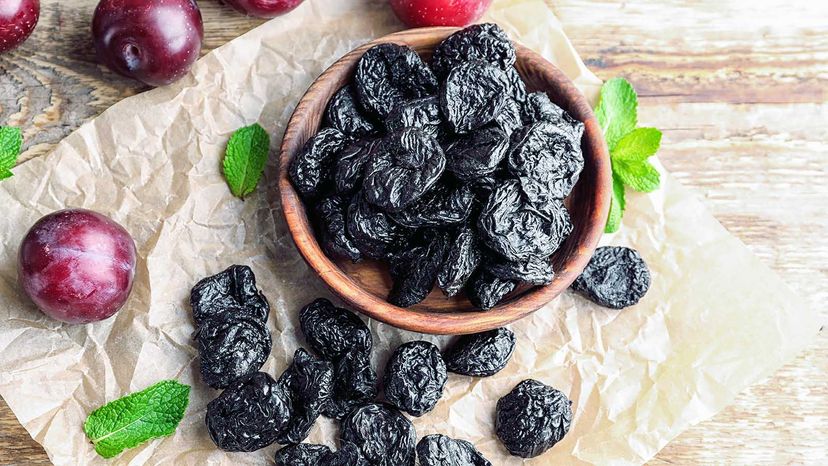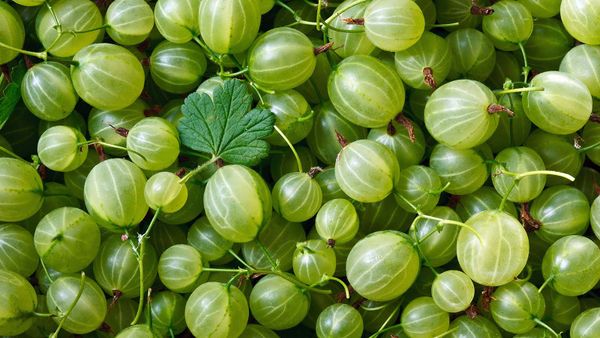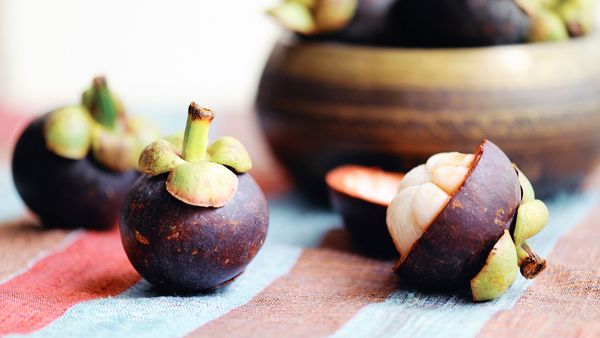
Prunes are a very uncool, unsexy food. They are not avocado toast or cake. They are dried plums. They have a reputation for helping keep your bowel movements regular and for being popular with old people. It's tough out there for prunes.
But what if we told you they're great for building healthy bones that stay strong even as you get older? Now how much would you pay? Actually, you'll pay exactly the same price as you would before you knew this information. Prunes are still, so far, not a designer food.
Advertisement
When we're young, our bones build more mass than they lose. When we reach our late 20s, we're at peak bone mass. After that, our bones lose more mass than they form, a process called resorption. Post-menopausal women have even more bone loss once their bodies stop producing estrogen.
We're often told we need calcium to build strong bones, and it's true — 99 percent of the body's calcium is in our bones and teeth. We get calcium mostly from foods we eat, such as dairy products, salmon and foods that are fortified with calcium, like juice or breakfast cereal. In order to absorb calcium, the body also needs vitamin D, which we usually get from sunshine. And then to calcify bones, vitamin K steps in to help.
Here's where our friend the prune comes in. Prunes are rich in vitamin K as well as potassium, which also helps maintain bone density. A study published in the journal Osteoporosis International in 2016 showed that eating 50 grams of prunes a day, which is about five or six prunes, is just as effective as a higher dose of prunes.
The study focused on post-menopausal women who had already experienced some loss of bone mass. Eating a handful of prunes every day for six months seemed to prevent bone resorption, which meant the subjects maintained a higher bone mass density.
A 2017 survey of prune studies published in the journal Nutrientsfound that prunes are safe to consume with no adverse effects. Four prunes contain about 280 milligrams of potassium and 22.8 micrograms of vitamin K.
If you're looking for ways to get more prunes in your life, you can just eat them, the same way you would dried apricots or raisins. You can also chop them up and add them to granola, trail mix or oatmeal. Again, anything you can do with another dried fruit, you can probably do with prunes.
Advertisement

